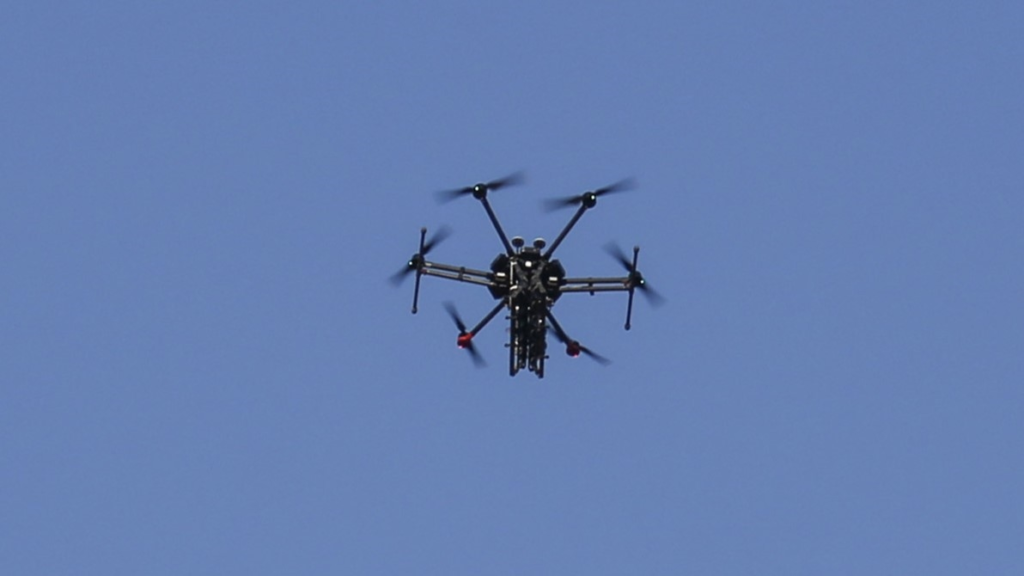The ongoing conflict in Gaza has witnessed numerous tactics employed by both sides, but recent reports of psychological warfare using drone technology have drawn significant international attention.
Israeli forces’ deployment of quadcopter drones emitting distressing sounds—like crying babies and screaming women—has intensified concerns about the human impact of warfare and the ethical boundaries of modern military strategies. This unsettling development highlights the increasingly sophisticated, yet controversial, methods used in conflict zones.
Israeli Drones Play Sound of Crying Babies
Reports emerging from Gaza, including interviews by human rights organizations, reveal that Israeli forces have been using quadcopters to play distressing sounds.
These drones reportedly broadcast cries of babies and pleas from women in distress, designed to lure Palestinian civilians out of their shelters and homes. The goal appears to be exposing individuals in open areas where they become vulnerable targets.
Maha Hussaini from Euro-Med Human Rights Monitor described this tactic in detail, recounting how residents in Nuseirat heard unusual noises. Testimonies from multiple Palestinians confirmed a consistent pattern: distressing sounds drew people outside, often leading to injuries or fatalities.
Read : Hamas Threatens to Kill Hostages if Israel Launches Rescue Operation
Abu Anas Al-Shahrour, a resident who went out to investigate the sounds, was tragically shot in the head. This incident underscores the devastating consequences of such tactics, turning acts of compassion into fatal decisions.
Such methods have not been isolated incidents. Reports from other areas like Khan Younis and the West Bank indicate similar strategies, where sounds of children crying and women screaming were used.
These are testimonies of Palestinians who thought they heard children and women screaming for help in Gaza's Nuseirat refugee camp, only to realize that the cries were coming from an Israeli drone broadcasting distress calls to lure them out so it could shoot them. pic.twitter.com/69OCEdCfQe
— AJ+ (@ajplus) April 17, 2024
In some cases, the drones also broadcast threats, warning Palestinians that they would face dire consequences if they resisted. These psychological operations, aimed at destabilizing communities and instilling fear, reflect a new dimension of warfare where technology blurs the line between military strategy and human rights violations.
Impact on Civilians: Fear and Confusion
The immediate impact of these tactics on Palestinian civilians has been profound. In conflict zones like Gaza, where bombings and airstrikes have already displaced millions, the use of psychological warfare exacerbates an already dire situation.
Families are not only facing physical dangers but are also subjected to emotional manipulation designed to erode their resolve and create chaos. The sounds of crying babies and distressed women tap into deep human instincts to protect and help others, making these tactics particularly insidious.
Mohammad Nabhan, a resident of Nuseirat, recounted hearing a woman’s voice pleading for help and the cries of a baby. He quickly realized that the sounds were coming from a drone and warned his cousin not to fall for the ruse.
This level of vigilance reflects the psychological toll on communities where everyday acts—like responding to a cry for help—can lead to deadly consequences. It also highlights the resilience of civilians who have adapted to living under constant threat, though at a great personal and collective cost.

The broader implications are equally troubling. Such tactics create an atmosphere of constant fear and uncertainty, making it difficult for civilians to trust their own instincts. In a region already marked by trauma and loss, this adds another layer of psychological burden.
The sounds, specifically designed to evoke an emotional response, target the very fabric of human compassion. This manipulation has far-reaching effects on mental health, as residents are forced to suppress natural instincts to protect their own safety.
Human Rights Concerns and International Response
The use of psychological warfare in conflict zones raises significant human rights concerns. Organizations like Euro-Med Human Rights Monitor and various international bodies have condemned these tactics, calling them a violation of humanitarian laws.
The Geneva Conventions, which set the standards for humanitarian treatment during war, emphasize the protection of civilians and prohibit methods that cause unnecessary suffering. Using distressing sounds to lure civilians into harm’s way can be seen as a clear violation of these principles.
The broader strategy, sometimes referred to as the “General’s Plan,” has also come under scrutiny. Allegedly aimed at depopulating northern Gaza under the pretext of combating Hamas, this plan has been labeled a war crime by the International Criminal Court (ICC).
The issuance of an arrest warrant for Israeli Prime Minister Benjamin Netanyahu underscores the seriousness of these allegations. This case highlights the growing demand for accountability in modern warfare, where technology can be used both as a tool for defense and a means of inflicting psychological harm.

International reactions have varied, but there is a growing consensus that such tactics must be scrutinized and addressed. Human rights organizations continue to document and report these incidents, pushing for investigations and accountability.
The use of drones for psychological warfare is not just a regional issue; it sets a dangerous precedent for conflicts worldwide. If left unchecked, it could normalize the use of similar tactics in other war zones, further endangering civilian populations.
The use of drones emitting distressing sounds to lure civilians out of their homes in Gaza represents a deeply troubling aspect of modern warfare.
It highlights the blurred lines between military strategy and human rights violations, raising important ethical questions about the conduct of war.
While the immediate goal may be tactical advantage, the long-term impact on civilian populations is devastating, both physically and psychologically.
This incident serves as a stark reminder of the need for international vigilance and accountability. As technology continues to evolve, so too must the frameworks that govern its use in conflict.
Ensuring the protection of civilians and upholding humanitarian principles must remain a priority, even in the most challenging circumstances.
The global community cannot afford to ignore the human cost of such tactics, and it must work collectively to prevent similar violations in the future.

